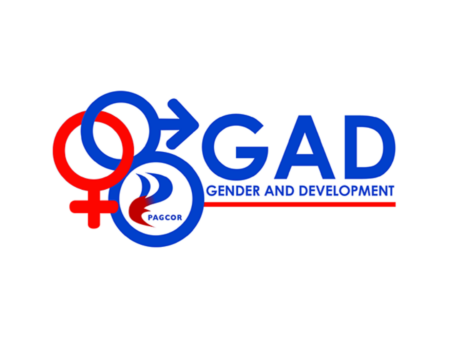The Philippines’ Department of Labor and Employment (DOLE) has announced significant enhancements to the screening process for foreign workers applying for Alien Employment Permits (AEPs) in the country. This initiative comes in response to recent arrests of illegal Philippine Offshore Gaming Operators (POGOs), where many suspects were found to be foreign workers with improper or fake documents.

The Philippines’ Department of Labor and Employment to Enhance Screening Process for Alien Employment Permits
Strengthening Document Scrutiny and Inspection
Labor Secretary Bienvenido Laguesma emphasized the need for stricter measures, stating, “Aside from scrutinizing documents and the submission of requirements, our frontliners in regional offices are also conducting inspections, especially here in the National Capital Region because the concentration of those applying for an AEP is here.” This step is crucial to ensure that foreign applicants meet all legal requirements and that their documentation is genuine.
Moreover, Laguesma reassured the public that no qualified Filipino workers would be replaced or displaced by the issuance of AEPs to foreigners. This measure aims to protect local employment opportunities while regulating the influx of foreign workers.
Coordination with Government Agencies
To address the complexities of AEP issuance, the DOLE is coordinating with several government agencies, including the Bureau of Immigration (BI), Department of Justice, Department of Foreign Affairs, and the Professional Regulation Commission. This inter-agency collaboration is intended to streamline processes and enhance the effectiveness of policies related to the employment of foreign nationals.
Partnership with PAGCOR
The DOLE is also working closely with the Philippine Amusement and Gaming Corp (PAGCOR) to regulate licensed operators known as Internet Gaming Licensees (IGLs). PAGCOR’s current policy prohibits work-from-home schemes for IGL employees to curb illegal activities. The DOLE will conduct inspections to ensure that these operators comply with regulatory standards.
Impact on the Industry
The tightening of the AEP screening process is expected to have several impacts on the industry:
Enhanced Security and Compliance
By scrutinizing documents more thoroughly and conducting regular inspections, the DOLE aims to enhance security and ensure compliance with existing laws. This will help to identify and eliminate illegal foreign workers, thereby maintaining the integrity of the labor market.
Protection of Local Workforce
The DOLE’s commitment to ensuring that no qualified Filipino workers are displaced by foreign applicants is a significant step towards protecting the local workforce. This measure will help maintain a balance between local and foreign employment, ensuring fair opportunities for Filipino workers.
Improved Inter-Agency Coordination
The collaboration between DOLE and other government agencies will lead to more effective policy implementation and enforcement. This coordinated approach will help address the challenges associated with the employment of foreign nationals and ensure that regulations are followed.
Regulation of Internet Gaming Licensees
The partnership with PAGCOR and the enforcement of policies related to IGLs will help regulate the online gaming industry. By prohibiting work-from-home schemes and conducting inspections, the DOLE aims to prevent illegal activities and ensure that licensed operators comply with the law.
Future Directions
The DOLE’s initiatives to enhance the AEP screening process are part of a broader effort to regulate the employment of foreign nationals and protect the local workforce. Moving forward, the department plans to continue its collaboration with other government agencies and industry stakeholders to ensure that all foreign workers comply with Philippine laws and regulations.
Conclusion: The DOLE
The Philippines’ Department of Labor and Employment is taking significant steps to enhance the screening process for Alien Employment Permits. Through stricter document scrutiny, regular inspections, and inter-agency coordination, the DOLE aims to ensure compliance with existing laws and protect the local workforce. The partnership with PAGCOR further strengthens regulatory measures in the online gaming industry. These initiatives reflect the department’s commitment to maintaining the integrity of the labor market and providing fair employment opportunities for Filipino workers.
FAQs on DOLE’s Enhanced Screening Process for Alien Employment Permits
1. What is the main reason behind DOLE’s enhancement of the screening process for Alien Employment Permits (AEPs)?
The main reason is to address the issue of illegal foreign workers in the Philippines, particularly in the wake of arrests involving illegal Philippine Offshore Gaming Operators (POGOs) who were found to have improper or fake documents.
2. Who made the announcement regarding the enhanced screening process for AEPs?
The announcement was made by Labor Secretary Bienvenido Laguesma.
3. What measures will DOLE implement to enhance the screening process?
DOLE will scrutinize documents more thoroughly, ensure the submission of all requirements, and conduct inspections, particularly in the National Capital Region, where there is a high concentration of AEP applicants.
4. How will the enhanced screening process protect Filipino workers?
The enhanced process ensures that no qualified Filipino workers will be replaced or displaced by the issuance of AEPs to foreign workers.
5. Which government agencies is DOLE coordinating with to improve AEP issuance policies?
DOLE is coordinating with the Bureau of Immigration (BI), Department of Justice, Department of Foreign Affairs, and the Professional Regulation Commission.
6. What role does PAGCOR play in the regulation of foreign workers?
DOLE is working with the Philippine Amusement and Gaming Corp (PAGCOR) to regulate licensed operators known as Internet Gaming Licensees (IGLs) and to ensure these operators comply with regulatory standards, including the prohibition of work-from-home schemes to prevent illegal activities.
7. How will the partnership with PAGCOR help regulate the online gaming industry?
The partnership ensures that licensed operators comply with the law through regular inspections and the prohibition of work-from-home schemes, which helps to prevent illegal activities within the industry.
8. What impact will the enhanced screening process have on security and compliance?
The process will enhance security by identifying and eliminating illegal foreign workers and ensure compliance with existing laws, thereby maintaining the integrity of the labor market.
9. How does DOLE plan to balance the employment of local and foreign workers?
By ensuring that the issuance of AEPs to foreign workers does not replace or displace qualified Filipino workers, DOLE aims to maintain a fair balance between local and foreign employment opportunities.
10. What future steps will DOLE take to regulate foreign employment in the Philippines?
DOLE plans to continue its collaboration with other government agencies and industry stakeholders to ensure all foreign workers comply with Philippine laws and regulations and to protect the local workforce.
11. How does this enhanced process affect DOLE’s relationship with other government agencies?
The enhanced process will lead to improved inter-agency coordination, resulting in more effective policy implementation and enforcement related to the employment of foreign nationals.
12. Why is there a focus on the National Capital Region for inspections?
The National Capital Region has the highest concentration of AEP applicants, making it a priority area for ensuring compliance through inspections.
13. What recent developments in DOLE’s policies target the online gaming industry?
Recent developments include working with PAGCOR to regulate Internet Gaming Licensees (IGLs) and ensure compliance with policies prohibiting work-from-home schemes to prevent illegal activities.
14. What assurances does DOLE provide regarding the protection of local employment opportunities?
DOLE assures that the enhanced screening process will ensure that no qualified Filipino workers are replaced or displaced by foreign applicants receiving AEPs.
15. How does DOLE’s enhanced screening process align with its overall goals?
The enhanced screening process aligns with DOLE’s goals of regulating foreign employment, protecting the local workforce, and maintaining the integrity and security of the labor market.

















